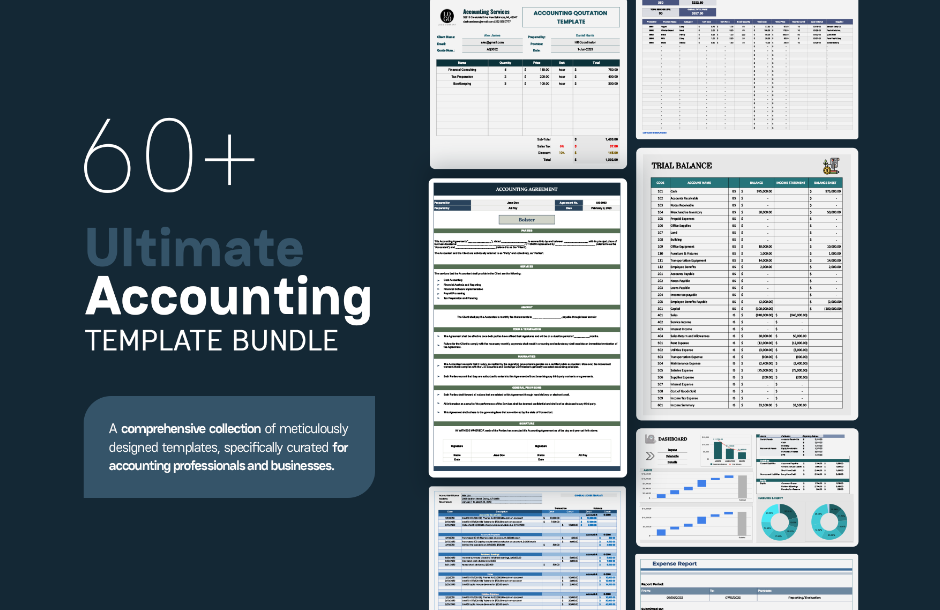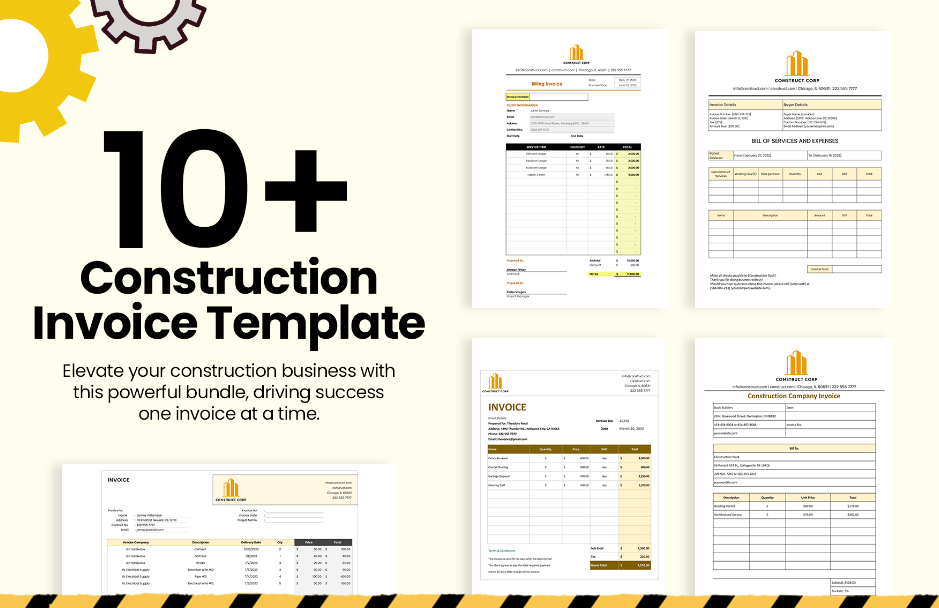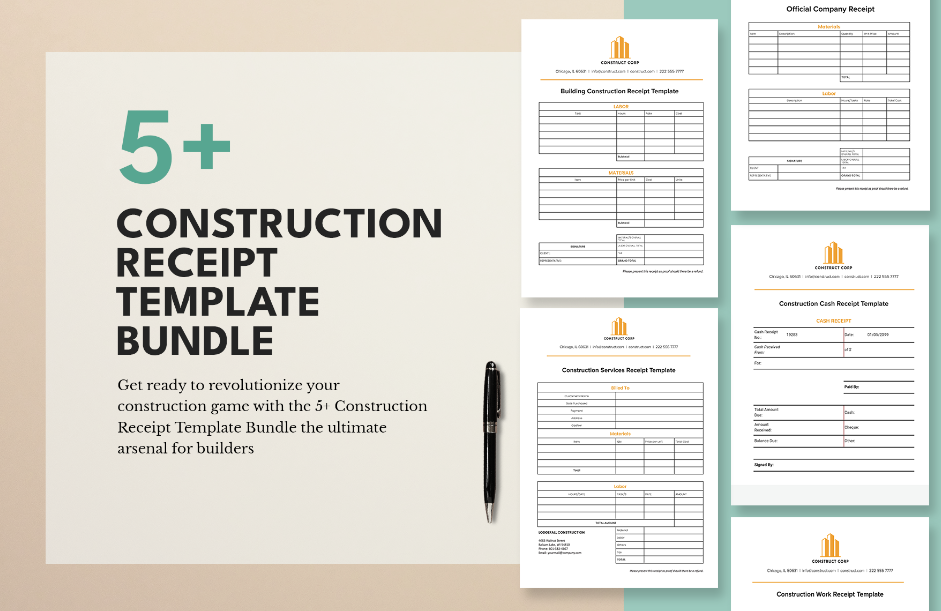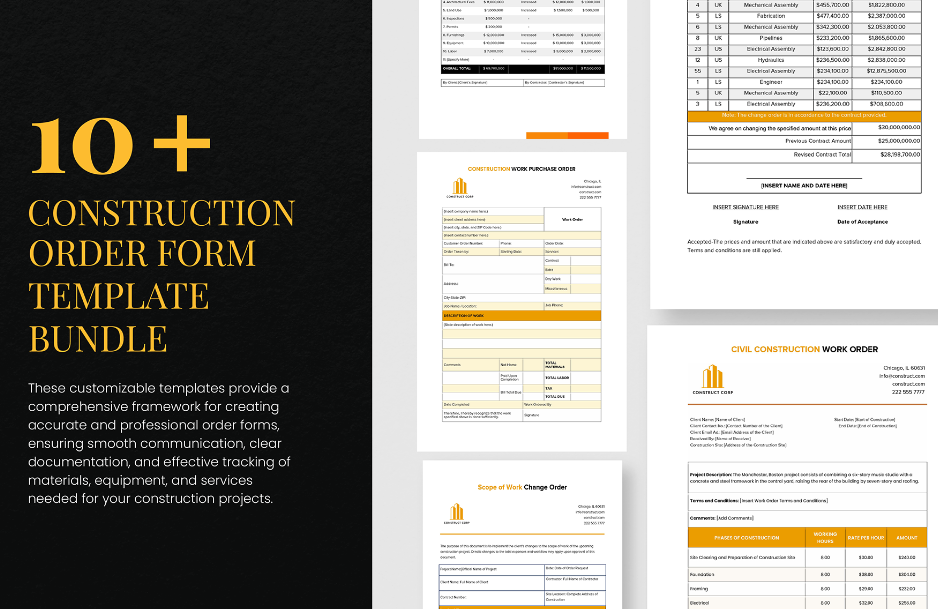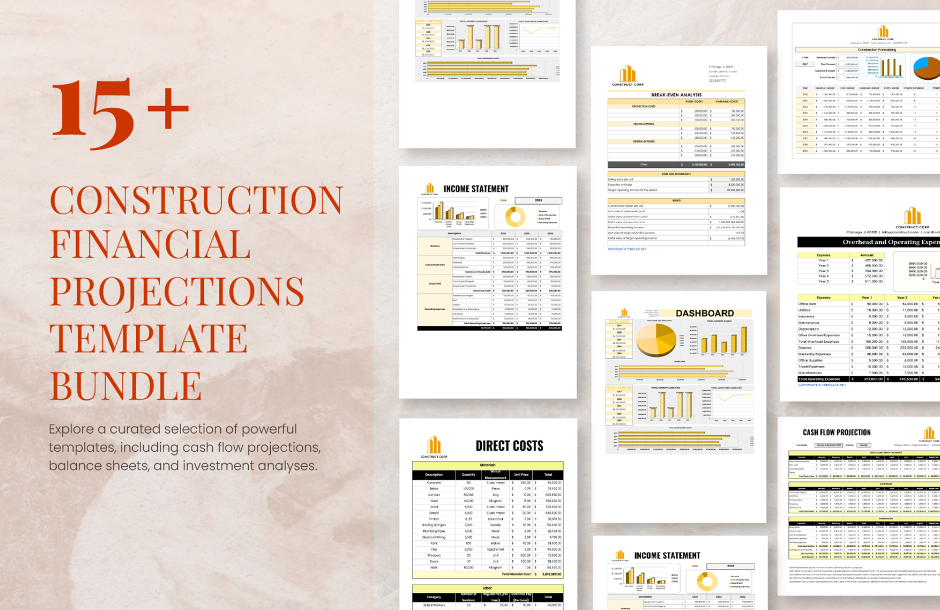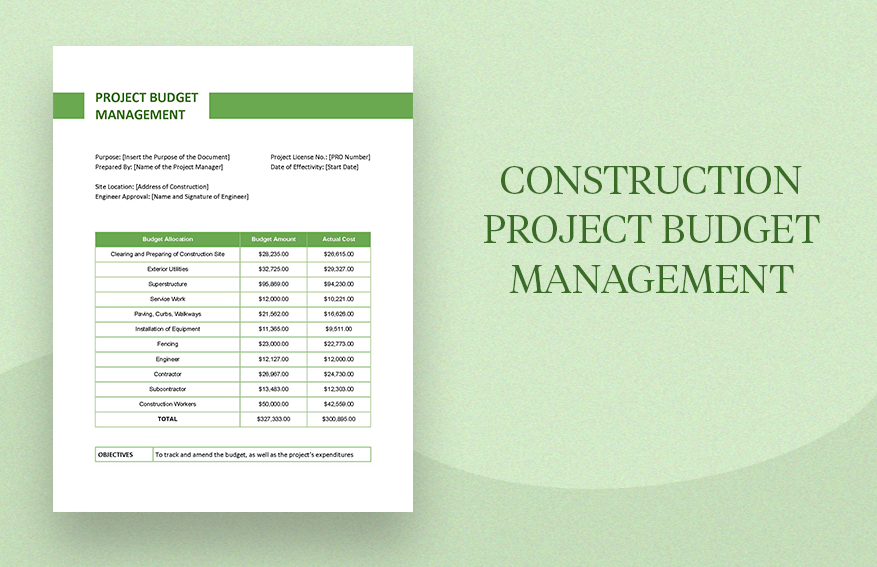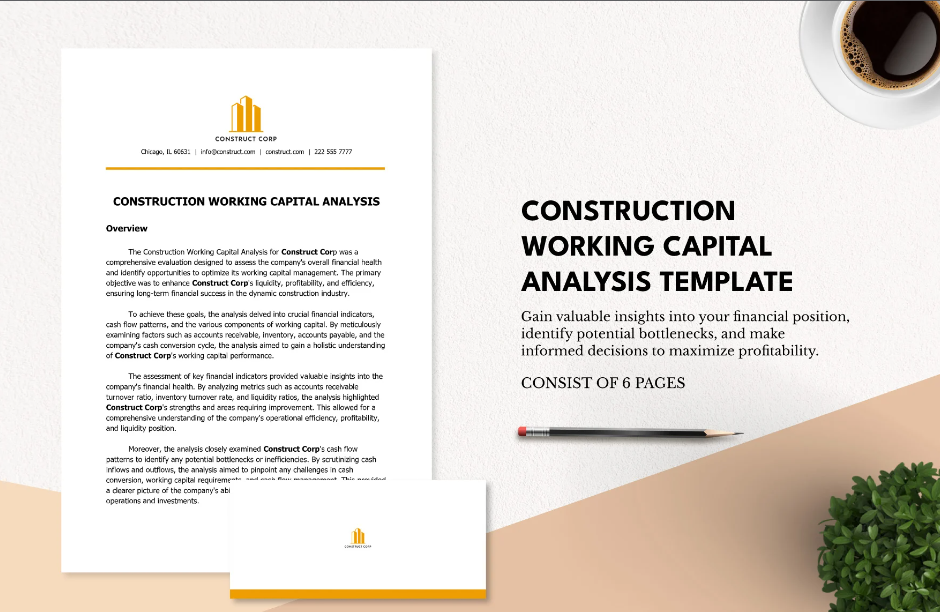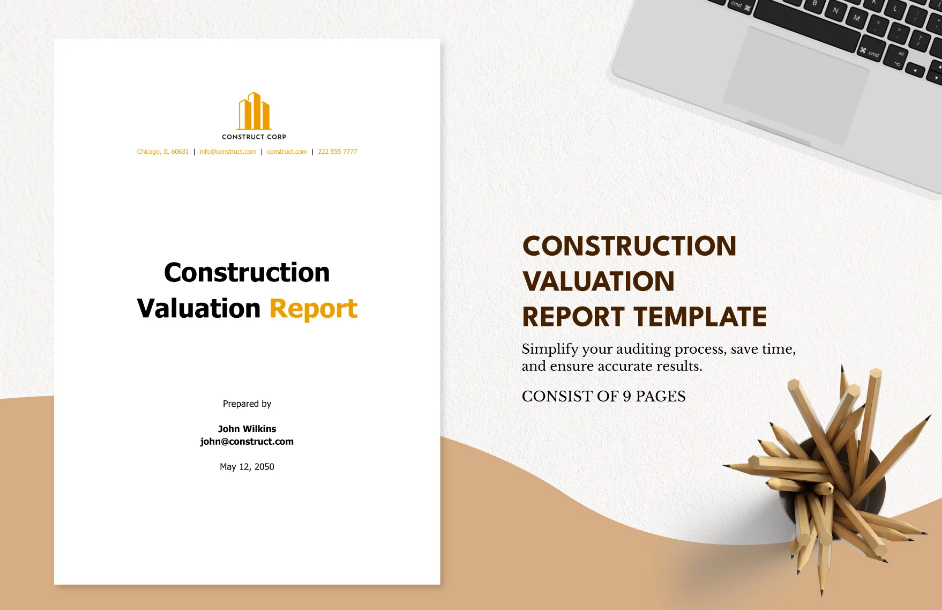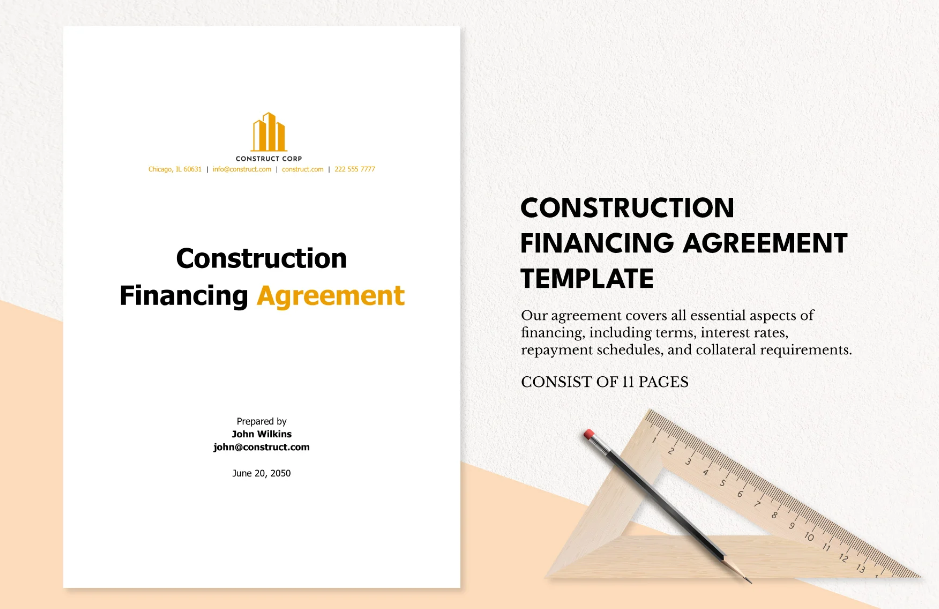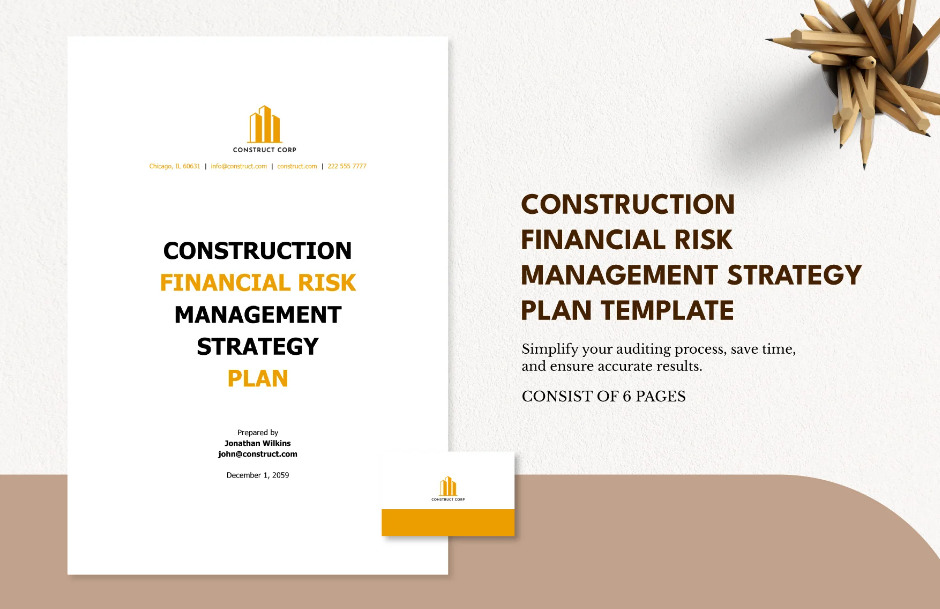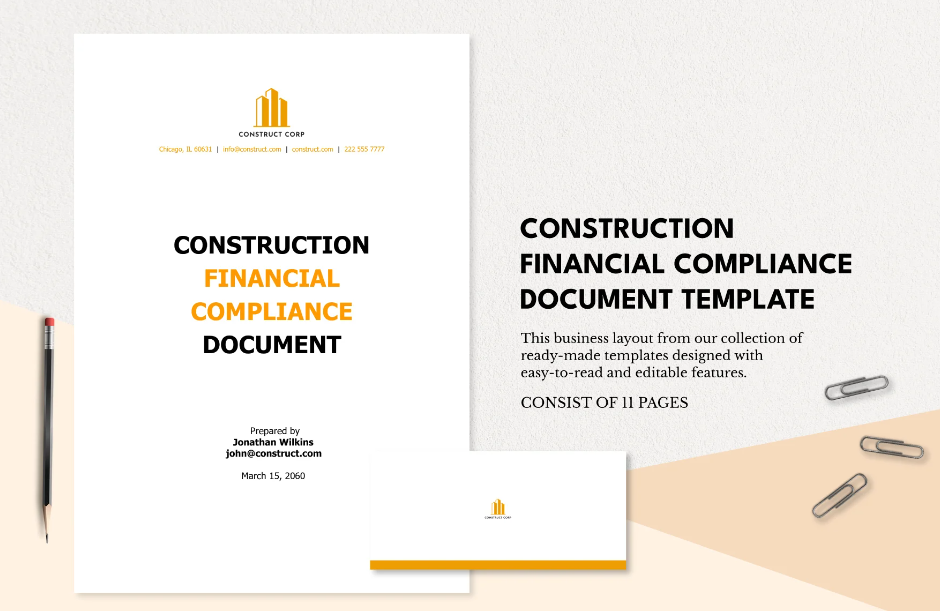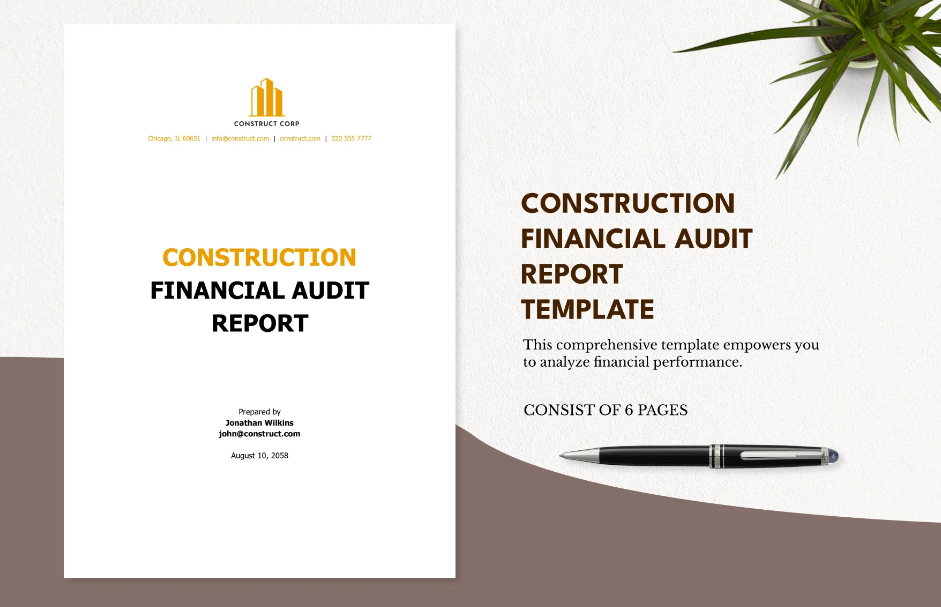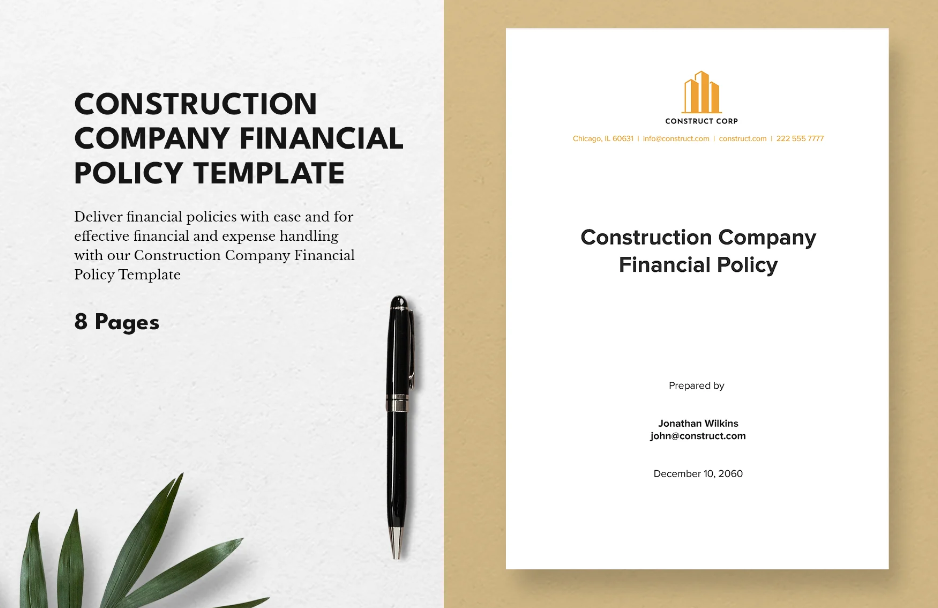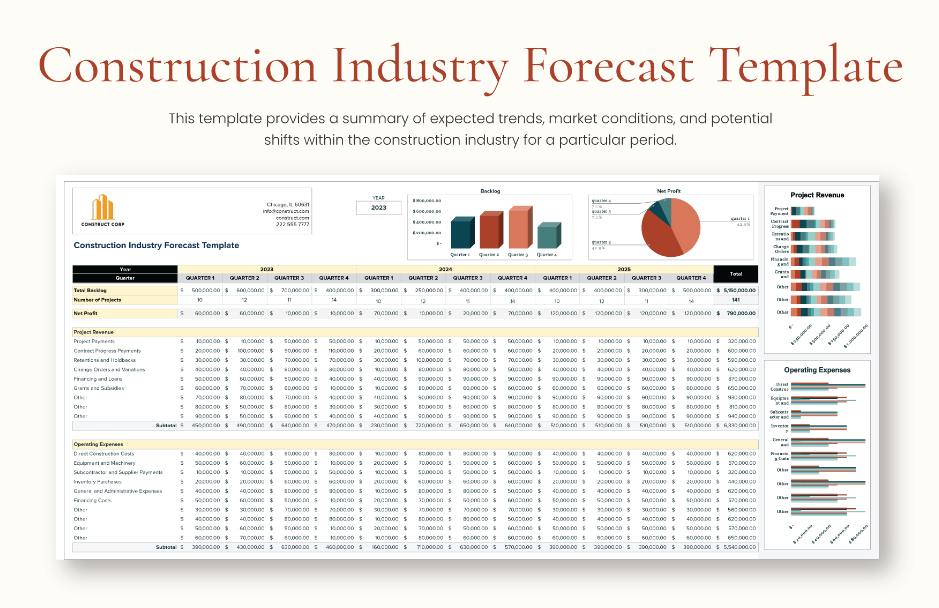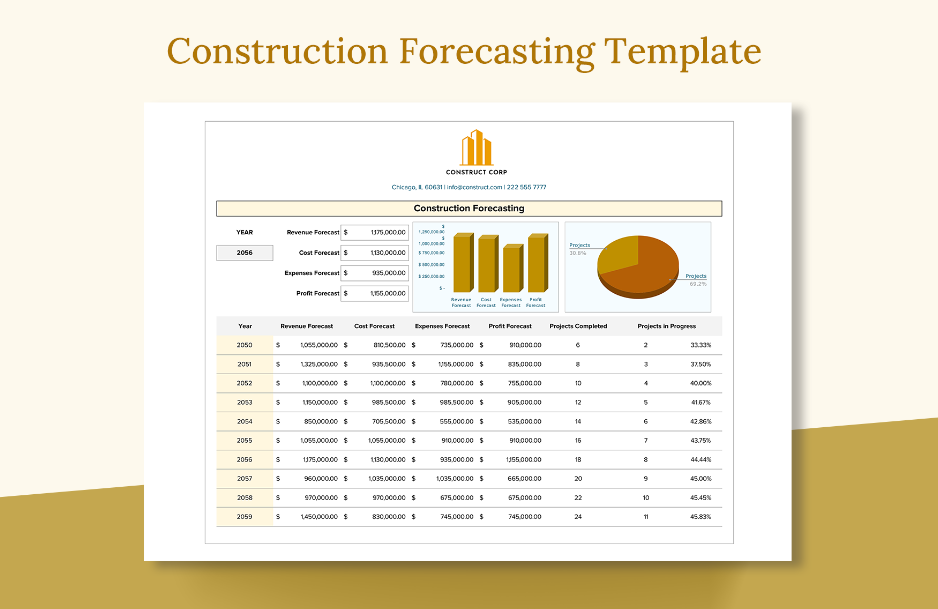Table of Contents
- Construction Accounting & Finance Definition & Meaning
- What Is a Construction Accounting & Finance Template?
- 15 Types of Construction Accounting & Finance Templates
- Construction Accounting & Finance Uses, Purpose, Importance
- Construction Accounting & Finance Ideas & Examples
- Construction Accounting & Finance FAQs
Construction Accounting & Finance Templates
Construction accounting and finance Form the bedrock of any successful building endeavor. Managing budgets, tracking expenses, and optimizing resource allocation are pivotal to ensuring projects stay on track and within financial frameworks, fostering the seamless fusion of construction and fiscal prudence.
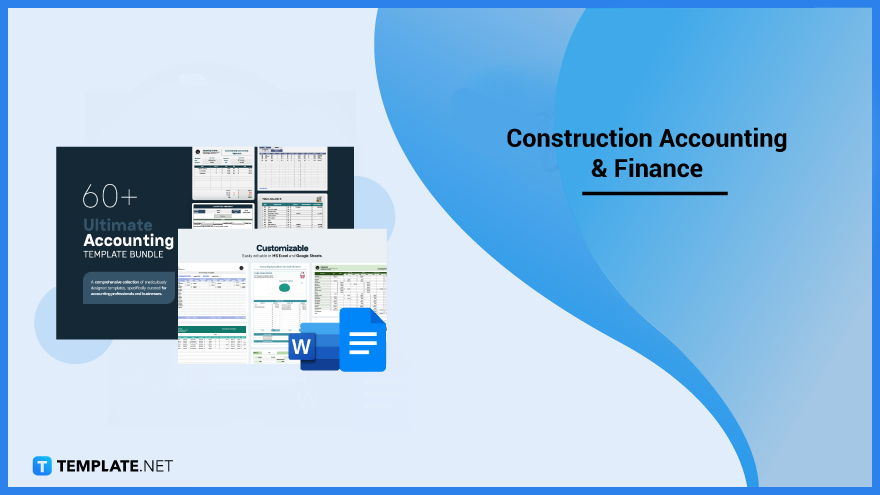
Construction Accounting & Finance Definition & Meaning
Construction accounting and finance pertains to the specialized realm of accounting that concentrates on overseeing the financial aspects of construction projects.
Construction accounting and finance encompasses activities such as monitoring project expenditures, creating construction budgets, generating financial statements, and ensuring the effective allocation of resources to ensure the successful culmination of construction ventures.
What Is a Construction Accounting & Finance Template?
A construction accounting and finance template is a pre-designed framework or document that aids construction businesses in effectively managing their financial processes. It offers standardized formats for tasks like budgeting, expense tracking, cost estimation, and financial reporting, streamlining financial management within the construction industry.
15 Types of Construction Accounting & Finance Templates
60+ Ultimate Accounting Template Bundle
The 60+ Ultimate Accounting Template Bundle offers a comprehensive set of templates tailored for construction businesses seeking efficient financial management. This collection offers a versatile variety of editable templates that empower construction professionals to streamline budgeting, expense tracking, cost analysis, and reporting, ultimately enhancing their construction accounting and finance processes.
10+ Construction Invoice Template Bundle
The 10+ Construction Invoice Template Bundle is a valuable resource designed to simplify billing processes for construction service providers. With a range of customizable construction invoice templates, this bundle offers construction firms a seamless way to create professional and accurate invoices, enhancing their construction accounting and finance efficiency.
Construction Receipt Template Bundle
The Construction Receipt Template Bundle is a must-have toolkit catering to the financial needs of construction businesses. This collection of construction receipt templates helps in the easy creation of detailed and organized receipts, enabling construction professionals to maintain precise records and improve their accounting and finance management.
10+ Construction Order Form Template Bundle
Discover the entries of the 10+ Construction Order Form Template Bundle—a versatile collection of templates that help improve the ordering process in construction businesses. Through an array of customizable construction order form templates, this bundle empowers construction enterprises to create meticulous order forms that can play a pivotal role in refining their construction accounting workflows.
15+ Construction Financial Projections Template Bundle
Construction teams can unlock the potential of precise financial planning with the 15+ Construction Financial Projections Template Bundle. This collection offers a set of customizable templates that make the creation of accurate financial projections easier, helping construction teams come up with more sound decisions that steer their accounting and finance strategies in the right direction.
Construction Project Budget Management Template
Crafted to enhance fiscal oversight, the Construction Project Budget Management Template helps secure the success of construction endeavors by facilitating comprehensive project budgeting, thereby aiding construction professionals to allocate sufficient financial assets to every facet of their projects. This budget template is editable in MS Word, Google Docs, and other popular document editing and spreadsheet apps.
Construction Working Capital Analysis Template
The Construction Working Capital Analysis Template is a dynamic tool for assessing and optimizing working capital in construction ventures. It helps construction financial management teams to make data-driven decisions that ensure they have enough financial assets to continue operating perpetually.
Construction Valuation Report Template
The Construction Valuation Report Template is an indispensable asset for construction enterprises seeking comprehensive financial insights. With its customizable framework, this template makes the creation of detailed valuation reports faster and easier, allowing its users to focus more on injecting the right data and ensuring they’re accurate.
Construction Financing Agreement Template
The Construction Financing Agreement Template is a good resource for construction businesses embarking on financial partnerships. It has sections that facilitate the creation of clear and comprehensive financing agreements that help construction professionals establish transparent terms and navigate their construction accounting terms with confidence.
Construction Financial Risk Management Strategy Plan Template
The Construction Financial Risk Management Strategy Plan Template enables the development of comprehensive risk management strategies that help construction professionals proactively address financial uncertainties. With this template, it’ll be easier for them to communicate said uncertainties with company stakeholders and ensure a better financial future for their construction firm.
Construction Financial Compliance Document Template
Creating financial compliance documents will be less of a hassle for construction firms if they use the Construction Financial Compliance Document Template. It comes with well-written sections that set the tone on how to communicate compliance procedures—in a way that convinces readers of the viability of a construction firm’s set standards.
Construction Financial Audit Report Template
The Construction Financial Audit Report Template is a great tool for construction enterprises seeking to ensure financial transparency and accuracy. It’s a template that aids construction professionals in writing detailed audit reports that allow them to conduct thorough assessments and ultimately improve their accounting and finance practices.
Construction Company Financial Policy Template
The Construction Company Financial Policy Template is for construction businesses aiming to establish robust financial guidelines. This template helps them create clear financial policies that ensure consistency and transparency in their financial practices, leading to improved financial management across the board.
Construction Industry Forecast Template
Navigate the evolving landscape of the construction industry with the Construction Industry Forecast Template. This template is a comprehensive tool for analyzing trends and projecting future developments, aiding construction companies to make the best decisions to refine their accounting and finance strategies proactively.
Construction Forecasting Template
Stay ahead in the construction sector using the Construction Forecasting Template. It’s a robust ready-made forecasting tool for predicting project trends and future demands, helping construction financial managers to tailor financial strategies that allow their company to stay afloat in the construction industry.
Construction Accounting & Finance Uses, Purpose, Importance
To fully understand the overall importance of construction accounting and finance, we have to discuss its five core purposes. Doing so will give us a clear overview of how proper accounting and financial management propel construction firms to the top of the industry.
Cost Estimation and Budgeting
Construction accounting helps in accurately estimating the costs of materials, labor, equipment, and other project-related expenses, and budgeting involves allocating funds appropriately to different project components. Accurate cost estimation and budgeting are essential to ensure that a construction project remains financially viable. They help in avoiding cost overruns, manage cash flow, and make informed decisions throughout the project’s lifecycle.
Project Financial Monitoring
Accounting in construction involves tracking and monitoring the financial progress of a project. It includes recording of actual expenses, comparing them against budgeted amounts, and identifying deviations. Effective financial monitoring allows project managers to detect potential issues early on, make necessary adjustments, and implement corrective actions. It helps maintain project profitability and ensures that financial goals are met.
Resource Allocation and Management
Allocating resources such as labor, equipment, and materials optimally across different projects is among the core practices of construction accounting and finance operations. Construction teams must assess resource availability to make sure projects go on smoothly. Efficient resource allocation minimizes wastage, maximizes productivity, and contributes to overall cost control. When resources are utilized where they are needed the most, project efficiency will improve.
Contract Management and Revenue Recognition
Construction accounting operations include the management of contracts, tracking project milestones, and recognizing revenue as work is completed. Performing those tasks helps construction teams comply with revenue recognition standards such as the percentage-of-completion method or completed-contract method. Proper contract management and revenue recognition ensure accurate financial reporting and prevent the recognition of revenue before it is actually earned. This aligns financial statements with the progress of the project and provides stakeholders with reliable information.
Risk Management and Financial Analysis
It’s an absolute must to identify and manage financial risks associated with a project, such as fluctuating material prices, labor shortages, or unexpected delays. The practice involves conducting financial analysis to evaluate project profitability and potential returns on investment. Effective risk management minimizes the impact of unforeseen events on project finances, and financial analysis help in making the right decisions about project viability, assessing potential profitability, and attracting investors or lenders.
Construction Accounting & Finance Ideas & Examples
There are plenty of document types that are necessary to carry out construction accounting and finance operations. If you wish to learn more about them, explore these well-made construction accounting and finance ideas and examples.
- Construction Financial Forecast Template Ideas & Examples
- Monthly Construction Budget Ideas & Examples
- Weekly Construction Budget Ideas & Examples
- Renovation Construction Budget Ideas & Examples
- Construction Subcontractor Invoice Template Ideas & Examples
- Construction Statement of Final Account Template Ideas & Examples
- Construction Payment Cycle Template Ideas & Examples
- Construction Profit & Loss Statement Template Ideas & Examples
- Construction Monthly Finance Tracking Template Ideas & Examples
- Construction Material Order Form Template Ideas & Examples
Construction Accounting & Finance FAQs
What is construction accounting?
Construction accounting refers to the specialized field of accounting that revolves around the effective management and monitoring of financial transactions, expenditures, and income associated with construction projects.
What is the role of a construction accountant?
A construction accountant plays a pivotal role in overseeing the financial aspects of construction endeavors and their responsibilities encompass tasks such as tracking costs, creating financial plans, generating invoices for clients, and ensuring compliance with industry-specific regulations.
What is a construction budget?
A construction budget is a detailed estimate of expected costs for a construction project and it covers expenses for materials, labor, equipment, overhead, and other project-related costs.
How do you calculate overhead costs in construction projects?
Overhead costs in construction include expenses like administrative salaries, utilities, and office supplies; they are typically allocated as a percentage of total project costs.
What is the distinction between accounts payable and accounts receivable in construction?
Accounts payable pertains to the outstanding payments that a construction company owes to suppliers, contractors, and vendors; on the other hand, accounts receivable represents the funds that clients owe to the company for completed construction work.
How does the Percentage of Completion (POC) method work in construction accounting?
The Percentage of Completion (POC) method recognizes revenue and expenses proportionally as a construction project progresses; it also reflects and shows the percentage of work completed compared to the total project.
What is the significance of retainage and progress billing in construction invoicing?
Retainage involves reserving a portion of a contractor’s payment until the project reaches successful completion. Progress Billing, on the other hand, encompasses the practice of submitting invoices for stages of a project that have been accomplished, leading to corresponding payments.
What is the importance of job costing in construction accounting?
Job costing helps track and allocate costs to specific construction projects. It provides insights into project profitability and helps identify areas for cost control.
How does construction financial reporting differ from regular financial reporting?
Construction financial reporting involves specialized reports such as work-in-progress (WIP) reports, which detail the financial status of ongoing projects. Regular financial reporting encompasses overall company financial performance.
What is the concept of cost-to-complete analysis in construction finance?
A cost-to-complete analysis evaluates the projected expenses needed to finalize a construction project. This analysis aids project managers in making informed decisions to ensure the project remains within the established budget.
How does the idea of “revenue recognition” apply to construction accounting?
In construction accounting, revenue recognition follows a gradual approach as the project advances, adhering to the Percentage of Completion method. This contrasts with other industries where revenue is often recognized upfront.
What are the tax implications specific to construction businesses?
Construction businesses may have tax considerations related to job-related expenses, equipment depreciation, and revenue recognition, and that’s why consulting with a tax professional is advisable.
What software is commonly used for Construction Accounting?
Software like Procore, Viewpoint, and QuickBooks for contractors are popular choices for construction accounting because they’re excellent tools that streamline project management, financial tracking, and reporting processes.
How do construction companies handle variations in project costs?
Construction companies manage variations in project costs by utilizing change orders. These orders outline modifications to the original project scope, specifications, or design, along with the associated cost adjustments. They also help ensure transparency and proper documentation of changes that can impact the project’s financial aspects.





